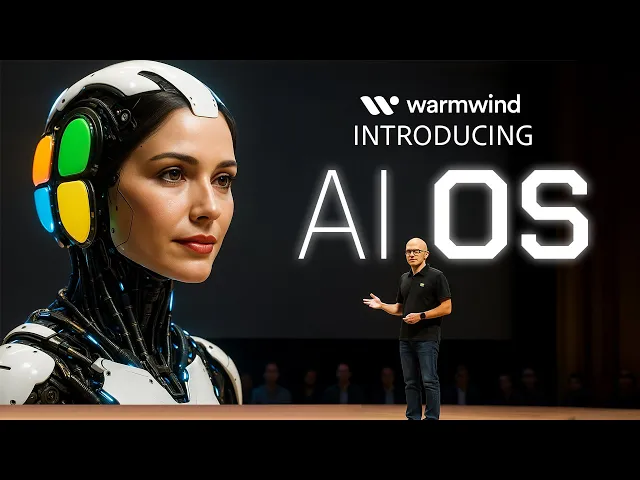First Fully AI OS Just Dropped And It’s Shockingly Overpowered

OS.ai: the artificial OS revolution begins
In the ever-accelerating realm of artificial intelligence, we've witnessed chatbots, image generators, and now something far more ambitious has emerged: an operating system entirely powered by AI. OS.ai, the brainchild of Rabbit founder Jesse Lyu, represents perhaps the boldest attempt yet to reimagine how we interact with computers through an AI-first approach to operating system design.
Key Points
-
OS.ai functions as a layer atop existing operating systems rather than a complete replacement, using AI to intelligently bridge applications and automate complex tasks through natural language commands
-
The system features three primary AI capabilities: an agent that executes commands across applications, a "copilot" that assists with ongoing activities, and a "maker" function that creates custom workflows
-
Despite impressive demos showing seamless task execution across different apps, questions remain about practical performance, privacy implications, and whether it truly represents a paradigm shift in computing interfaces
The Vision: Computing Without Interfaces
The most striking aspect of OS.ai is its ambition to eliminate the traditional computing interface altogether. For decades, we've interacted with computers through layers of abstraction—pointing, clicking, tapping icons that represent functions. OS.ai proposes something radically different: simply tell the computer what you want done, and it handles the rest.
This approach echoes what industry observers have been predicting for years. As Ben Thompson noted in Stratechery, "The end state of AI is the elimination of interfaces altogether." OS.ai seems to be the first serious attempt at realizing this vision, aiming to make the mechanical steps of computing—opening specific applications, navigating menus, formatting content—completely invisible to the user.
What makes this particularly interesting from a business perspective is how it could transform productivity. Consider the countless hours knowledge workers spend switching between applications, formatting documents, or searching for information across disparate systems. If OS.ai delivers on its promise, these friction points could disappear entirely, potentially representing the most significant productivity leap since the introduction of personal computing itself.
The Reality Check
However, we should approach these promises with measured skepticism. The history of computing is littered with revolutionary interfaces that promised to change everything—from Microsoft Bob to Google Glass—only to falter when confronted with real-world complexity.
Recent Videos
How To Earn MONEY With Images (No Bullsh*t)
Smart earnings from your image collection In today's digital economy, passive income streams have become increasingly accessible to creators with various skill sets. A recent YouTube video cuts through the hype to explore legitimate ways photographers, designers, and even casual smartphone users can monetize their image collections. The strategies outlined don't rely on unrealistic promises or complicated schemes—instead, they focus on established marketplaces with proven revenue potential for image creators. Key Points Stock photography platforms like Shutterstock, Adobe Stock, and Getty Images remain viable income sources when you understand their specific requirements and optimize your submissions accordingly. Specialized marketplaces focusing...
Oct 3, 2025New SHAPE SHIFTING AI Robot Is Freaking People Out
Liquid robots will change everything In the quiet labs of Carnegie Mellon University, scientists have created something that feels plucked from science fiction—a magnetic slime robot that can transform between liquid and solid states, slipping through tight spaces before reassembling on the other side. This technology, showcased in a recent YouTube video, represents a significant leap beyond traditional robotics into a realm where machines mimic not just animal movements, but their fundamental physical properties. While the internet might be buzzing with dystopian concerns about "shape-shifting terminators," the reality offers far more promising applications that could revolutionize medicine, rescue operations, and...
Oct 3, 2025How To Do Homeless AI Tiktok Trend (Tiktok Homeless AI Tutorial)
AI homeless trend raises ethical concerns In an era where social media trends evolve faster than we can comprehend them, TikTok's "homeless AI" trend has sparked both creative engagement and serious ethical questions. The trend, which involves using AI to transform ordinary photos into images depicting homelessness, has rapidly gained traction across the platform, with creators eagerly jumping on board to showcase their digital transformations. While the technical process is relatively straightforward, the implications of digitally "becoming homeless" for entertainment deserve careful consideration. The video tutorial provides a step-by-step guide on creating these AI-generated images, explaining how users can transform...
